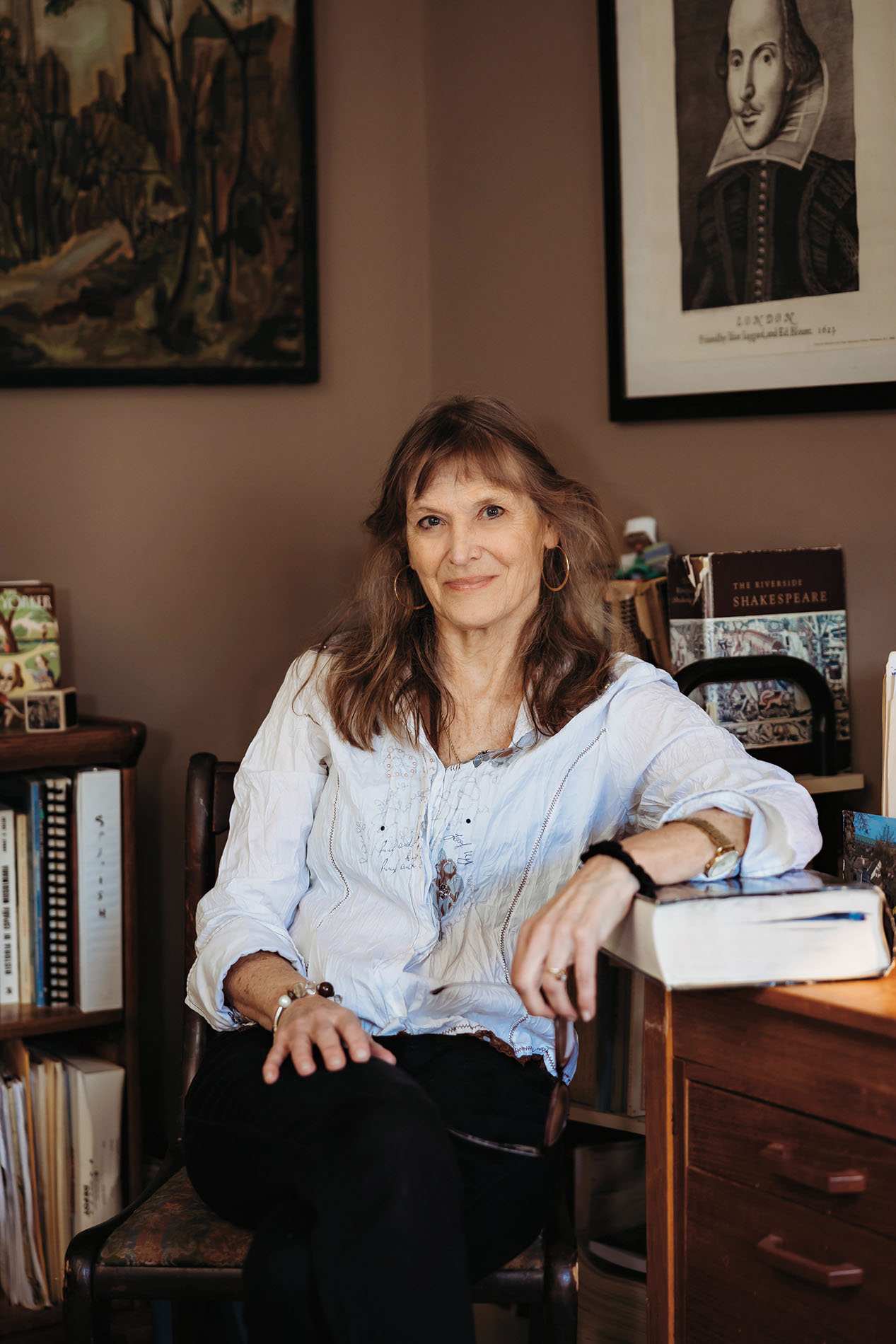William Shakespeare is widely considered to be the greatest writer in the English language, but relatively little is known about his personal life beyond his marriage to Anne Hathaway and the existence of their three children, Susanna, Hamnet and Judith. It is Judith who takes the storyteller role in the new novel “The Owl Was a Baker’s Daughter,” by alumna and Shakespeare scholar Grace Tiffany ’80. The book’s quizzical title references a line from “Hamlet,” but the story is all about Judith and her adventures during the English Civil War. This is the second fictional account of Judith by Tiffany, a professor of English at Western Michigan University, where she teaches British literature during the school year and authors books in her time off.
DukeMag: How much of “The Owl Was a Baker’s Daughter” is fact and how much fiction?
Grace Tiffany: Judith Shakespeare was a real person, of course, the twin sister of Hamnet. But not that much is known about her life – just basic facts like court records and baptisms. I have her be as old as she was during the time period in the story – during the English Civil War. I stick to the known facts about her family – the children she had and the man to whom she was married. Apart from that, I make her up, and I make her adventures up – that she’s practicing as a midwife and a surgeon, that she goes off to London. I invented all of that. Although we don’t know that it didn’t happen!
DM: New Shakespeare productions appear regularly on stage and screen. Why is his work still so popular?
GT: If you’re a 400-year-old dead writer, it helps if you were a playwright, because then your work is always available for performance and adaptation. My impression, from actors I’ve talked to over the years, is that they really love to speak Shakespeare’s language. There’s a kind of beauty and magic and precision in the dialogue. And the plays are endlessly adaptable. I was going to say you can make them be about everything. But in fact, they kind of are already about everything, which makes them open to explorations of things that are important to changing audiences.
DM: How were you introduced to Shakespeare?
GT: I had a wonderful high school teacher named Shirley Keith, and in 10th grade literature – English class – we read “Macbeth.” I also had parents who had tickets to the Folger Theatre in Washington, D.C. My mom would take me to plays when I was a teenager.
DM: Do you have a favorite Shakespeare play?
GT: That can change depending on what I've taught most recently. But one that's consistently a favorite is “The Merchant of Venice.” That play’s complicated and interesting to teach because it attacks antisemitism and other forms of ethnic bigotry, but the play is in some ways antisemitic at the same time, depending on which part you're looking at. So it's interesting to talk critically about that paradox. I also love “King Lear.” I had a recent experience of teaching that tragedy in a prison. These guys, the inmates, had read the play carefully, and they came in full of questions, relating its plot and language to their lives. We talked about parents and children as represented in the play, which is about an old man whose daughters turn against him as he succumbs to cognitive decline. These topics are very resonant for anybody who has someone in the family who's aging with difficulty, or anyone who’s been a witness to or involved in parent-child conflict, and who hasn’t? So we had all kinds of stuff to say about it.
DM: How did you find your way to Duke?
GT: I grew up in Arlington, Virginia, and Duke was a place a lot of my classmates were interested in. I had a particular friend who had chosen to go there, and that sparked my deeper interest. My parents and I visited the campus, and it happened to be Homecoming Weekend. Everybody was out decorating floats for the football game, partying and having a good time. I knew it was a good school academically, but my main thought was, “Oh, I could have some fun here.” My dad was looking on and thinking, “Not for my daughter.” But I wore him down. I ended up just loving the environment as well as respecting the academic prestige of the school.
DM: Whom do you read for pleasure?
GT: One of my favorite authors is Tobias Wolff. He’s written a full-length memoir and a novel, but also wonderful short stories. Marilynne Robinson is an eloquent and beautiful writer. And I love Hilary Mantel. As for the earlier writers, I don't think there's ever been a greater novelist than Dickens. He’s hilarious. I’m also a big fan of Tolkien and C. S. Lewis. I’ll read any author who projects some sense of social responsibility and can also write well. And it helps if they have a sense of humor. We all need that.
